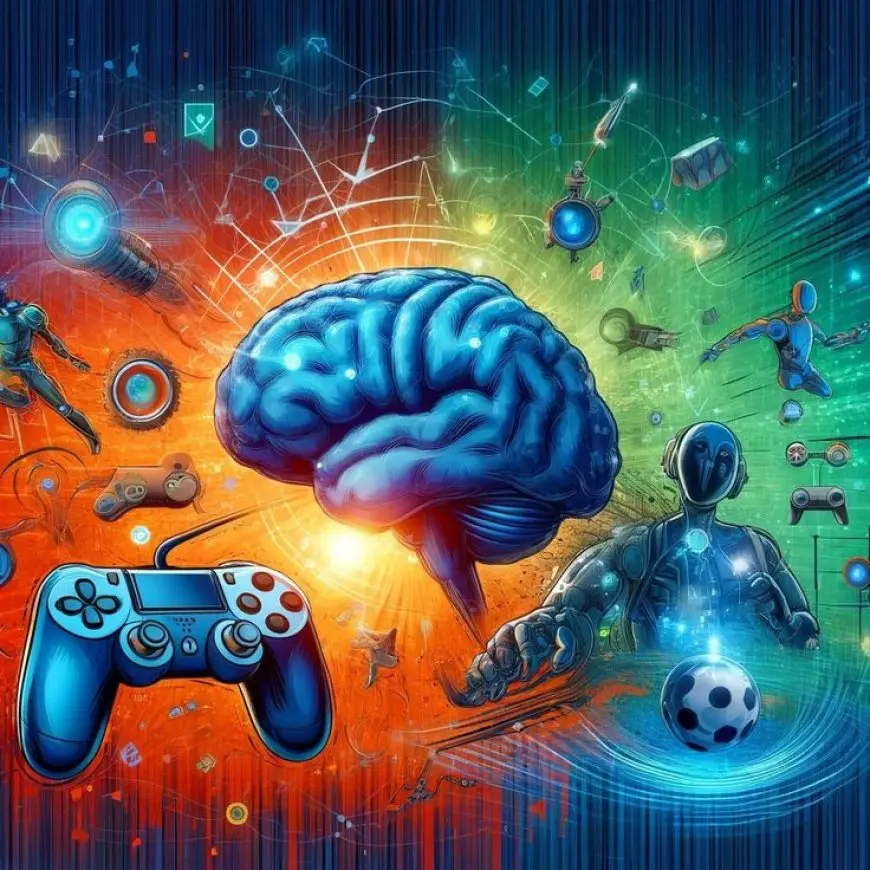"Artificial Intelligence in Game Development"
"Artificial Intelligence in Game Development"

Artificial Intelligence (AI) is transforming the world of game development, pushing the boundaries of what is possible in terms of gameplay, character behavior, and even the creation of immersive worlds. AI in gaming is no longer just a tool for creating smarter enemies or more efficient non-playable characters (NPCs); it has become an integral part of every aspect of the game development process, from design to storytelling.
Enhancing Gameplay with AI
One of the primary ways AI enhances video games is by making gameplay more engaging and challenging. Traditionally, video games relied on scripted behavior for NPCs, which made the gameplay predictable and repetitive. With AI, NPCs can now adapt to player actions, creating a dynamic and evolving gaming experience. For example, AI-driven characters can learn from the player’s strategies and adjust their behavior to provide a more challenging experience, keeping players on their toes.
AI can also be used to generate procedurally created content. Games like "No Man's Sky" use AI algorithms to create vast, diverse worlds that are unique for each player. This means that the game environment is not fixed but rather continually evolves, giving players a sense of discovery and endless possibilities.
AI for Game Testing and Quality Assurance
Game development is a complex and time-consuming process, and AI is increasingly being used to assist in quality assurance and game testing. Automated AI-driven systems can play through levels or entire games, identifying bugs, glitches, and inconsistencies that human testers might miss. This helps developers save time and resources while ensuring a smoother, more polished final product. AI can also test various game mechanics and player interactions, helping to fine-tune gameplay balance and difficulty.
NPCs and Non-linear Storytelling
AI is taking NPCs to the next level. Instead of following fixed dialogue trees or scripted actions, NPCs can now engage in dynamic conversations, influenced by the player's choices, past actions, or even the time of day within the game. This allows for more immersive, non-linear storytelling, where the narrative evolves based on player interactions. Games like "The Witcher 3" and "Red Dead Redemption 2" feature NPCs with rich backstories, motivations, and realistic behaviors that are influenced by the player’s decisions, creating a personalized story for each player.
AI in Game Design
AI is also revolutionizing the design phase of game development. Procedural generation techniques powered by AI are used to create complex environments, level designs, and assets without requiring extensive manual labor from the designers. This allows game developers to create massive worlds and intricate landscapes efficiently. Additionally, AI can help optimize game mechanics and ensure a smoother player experience by automatically adjusting difficulty levels based on the player's skill, progress, and play style.
Machine Learning and AI-Driven Animation
Machine learning techniques have been integrated into animation, providing more lifelike and fluid character movements. AI can analyze motion capture data and extrapolate more natural, realistic animations, saving time compared to traditional animation methods. AI can also predict character behavior in different environments, ensuring that movements remain consistent and believable within the game's world.
The Future of AI in Gaming
As AI continues to evolve, the potential for its use in game development expands. We are likely to see even more sophisticated AI that can create truly personalized experiences, adjusting the game’s narrative, characters, and world to suit individual player preferences. Additionally, advancements in machine learning could lead to AI that creates entirely new game genres, blending interactive storytelling, player-driven content, and dynamic environments.
The future of gaming with AI is bound to be more immersive, dynamic, and personalized than ever before. Game developers are just beginning to tap into the full potential of AI, and the industry is poised for a revolution that could reshape the way we play and experience video games.







